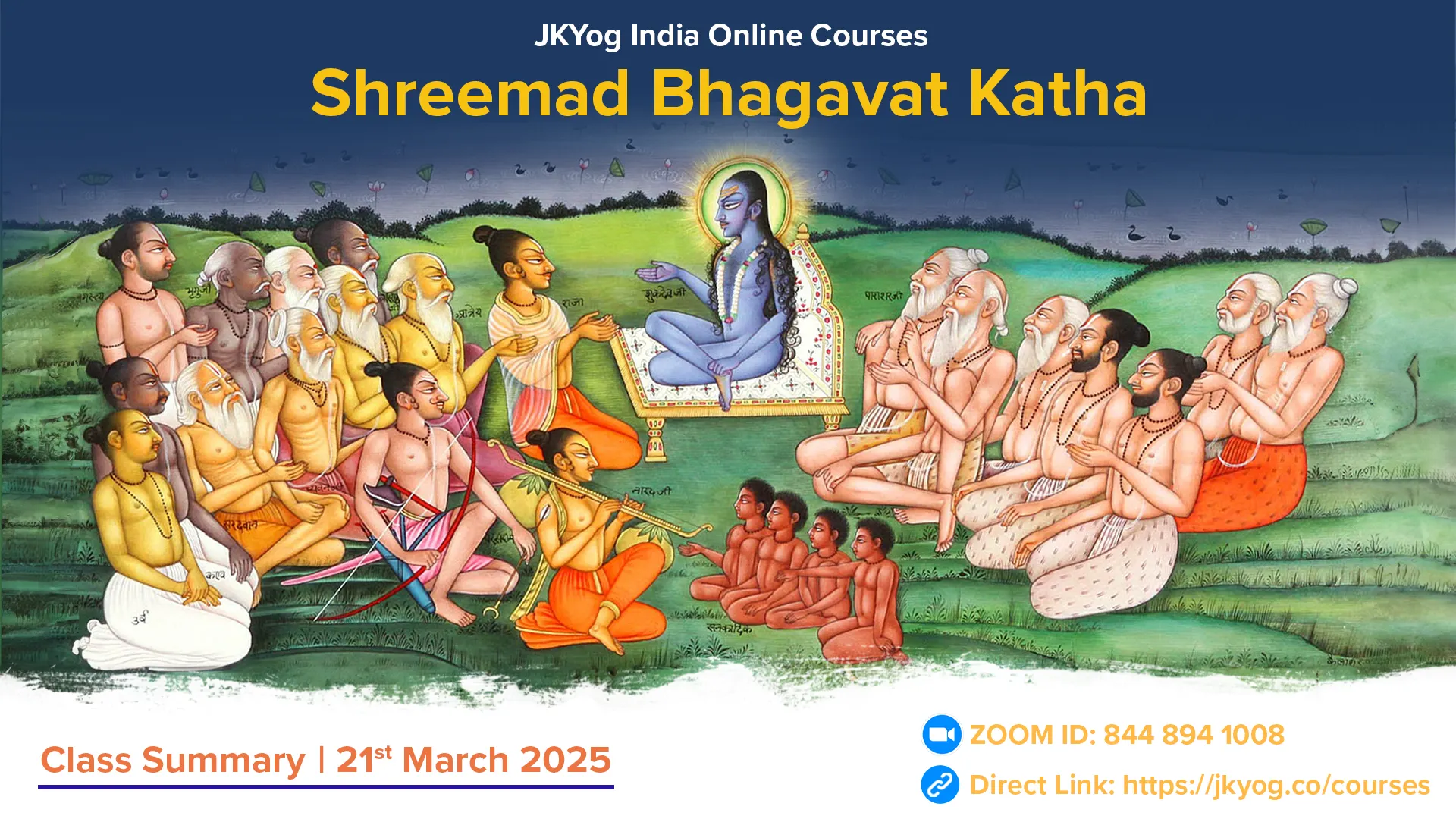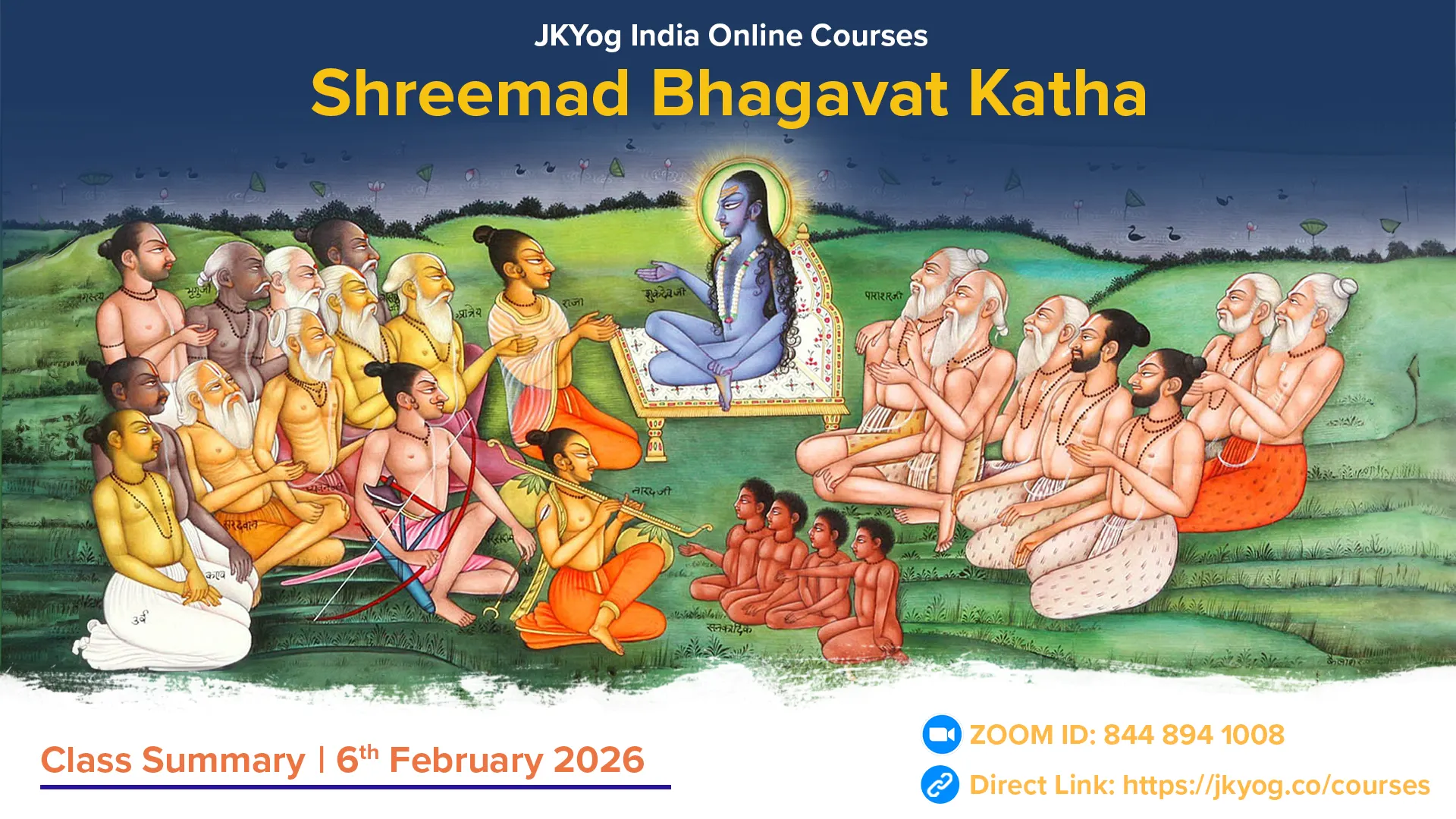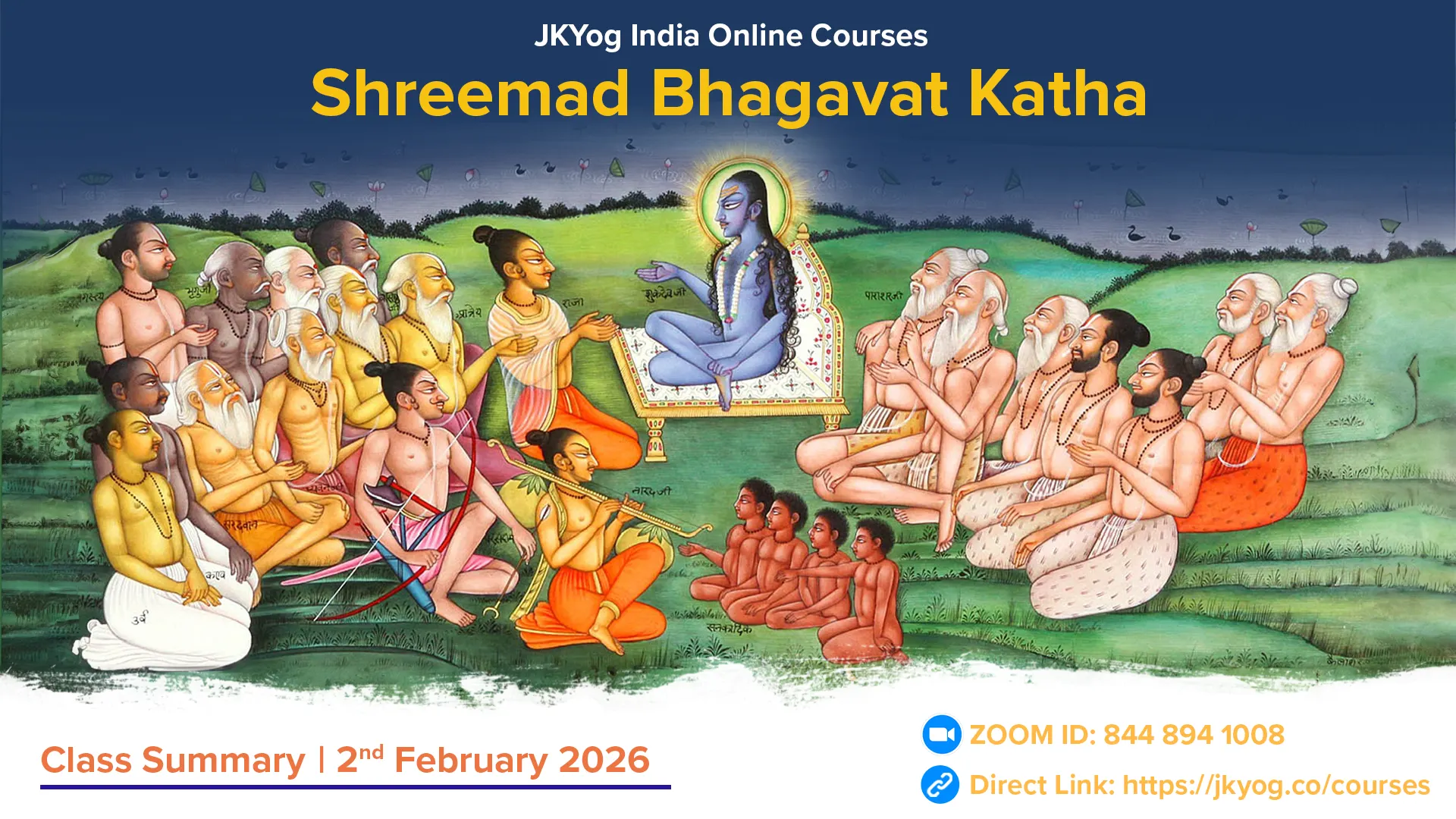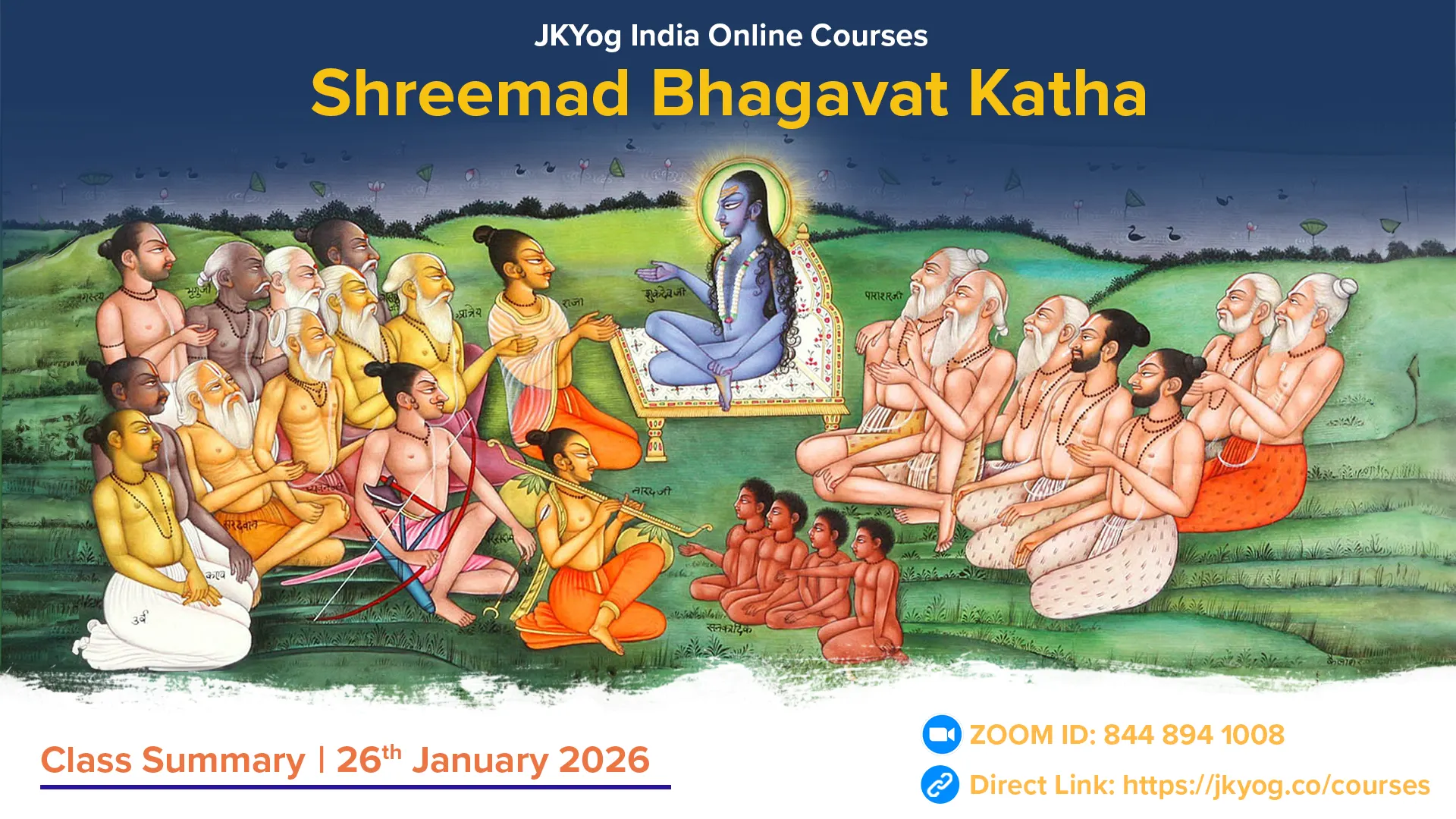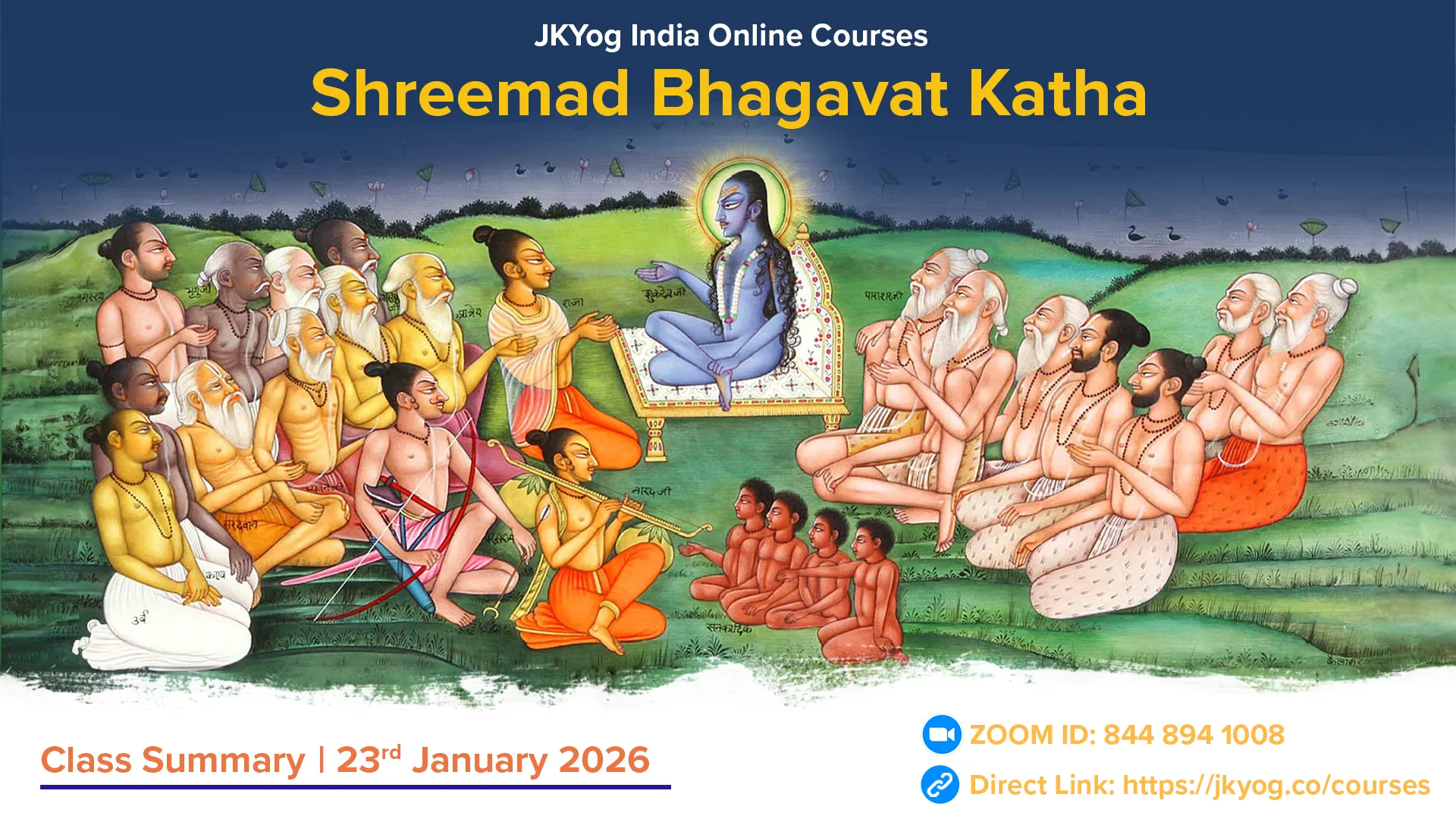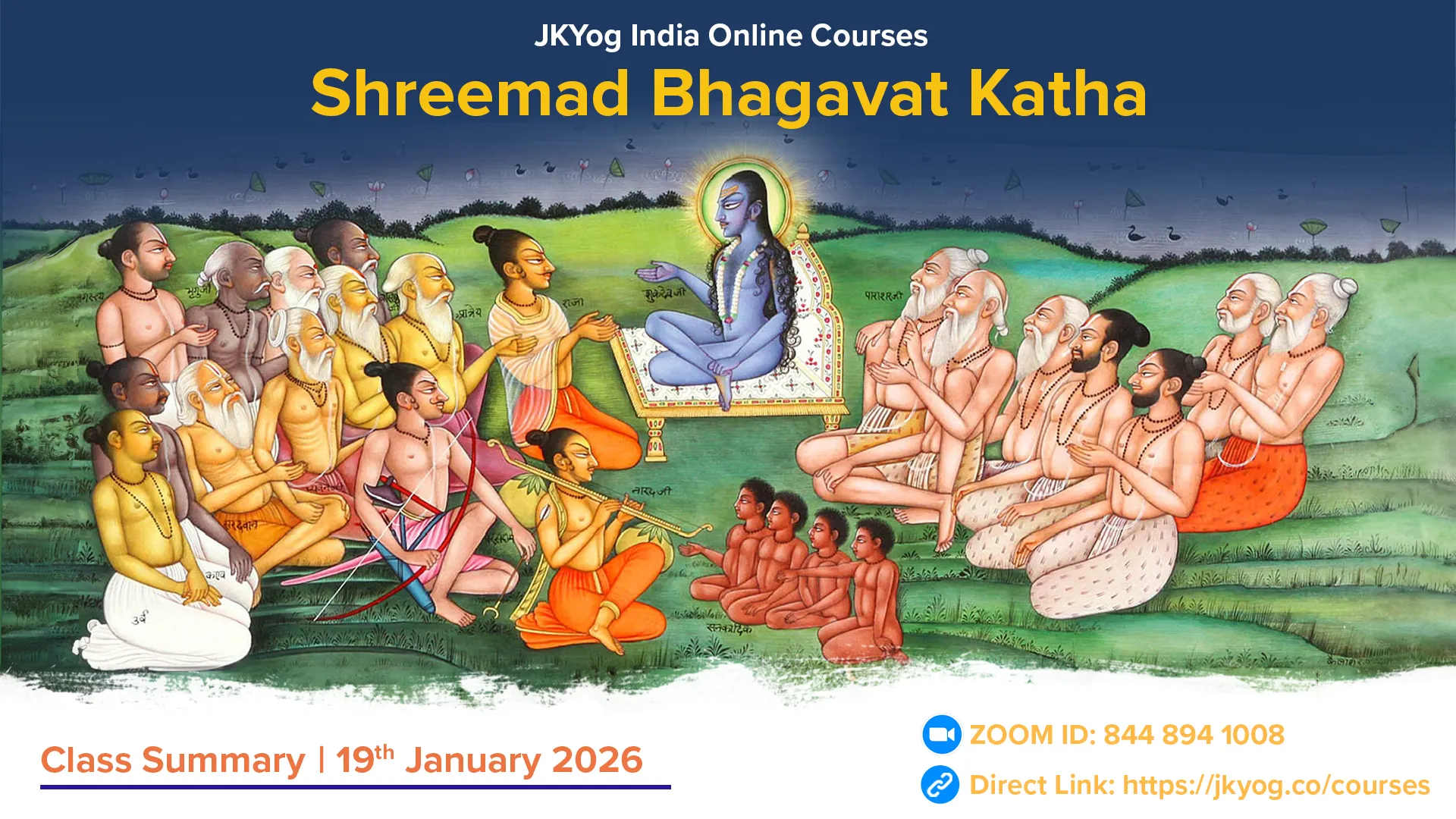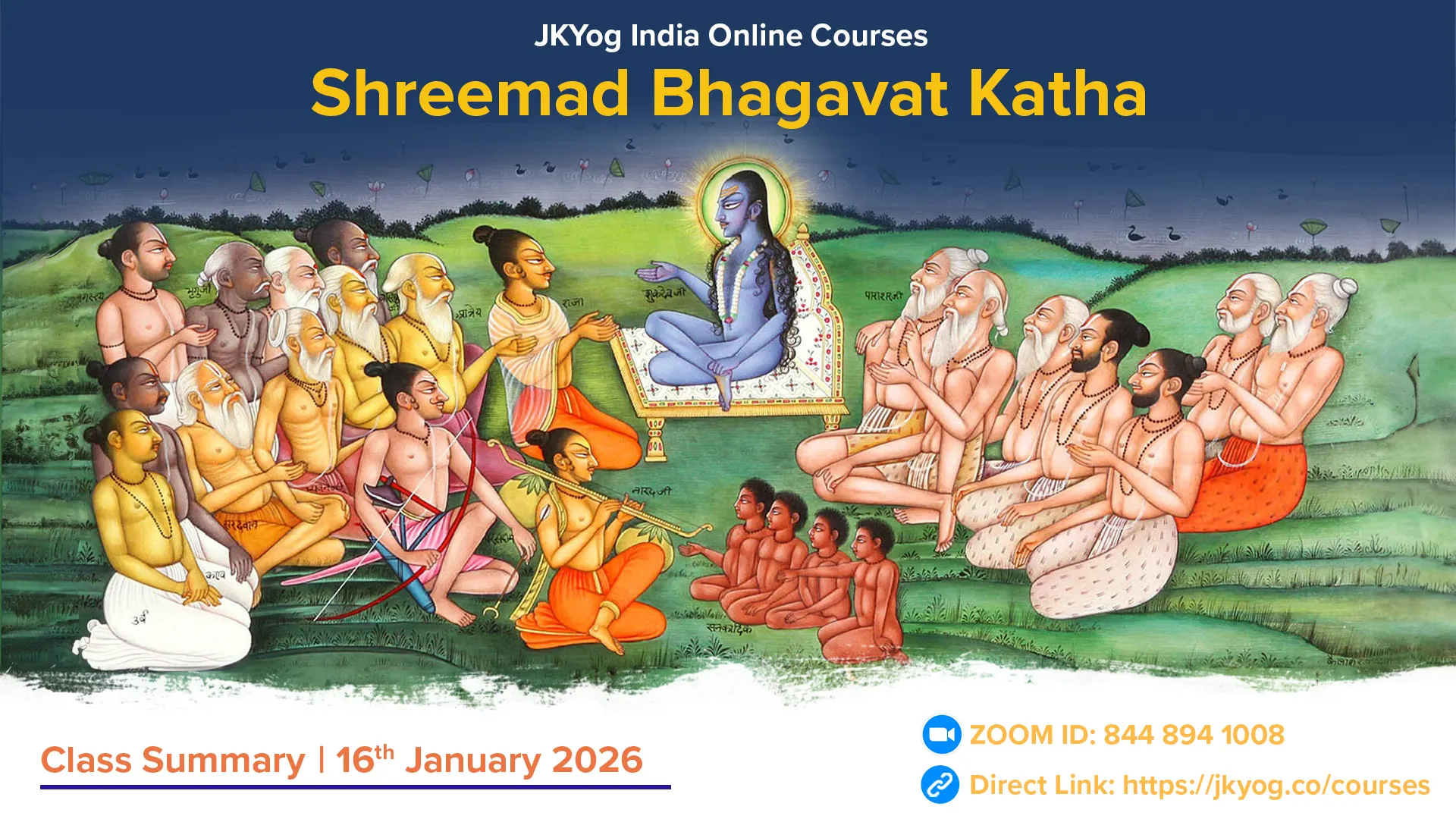Shreemad Bhagavat Mahapuran- Canto: 6, Chapters: 10-13
As per the command of Bhagwan Vishnu, the devas approach Rishi Dadhichi and request that he donate his body. Rishi Dadhichi initially explains that the pain of death is extremely intense, and the body is very dear to every living being. The devas humbly plead with him, saying that he is a great saint who is always ready to give up everything for the welfare of others. They admit that those who ask are often selfish and fail to understand the hardships of the giver, yet they request him to dedicate his body for the sake of Dharma and the greater good of the world.
Rishi Dadhichi smiles and says that he had delayed his acceptance only to hear a discourse on Dharma from the mouths of the devas. He agrees, saying that since the body is destined to perish one day, why not offer it for the welfare of all? He also adds that a person who does not use their mortal body in the service of others is inferior, even to lifeless trees and plants.
With firm resolve, Maharishi Dadhichi absorbed himself in the Supreme and renounced his physical body. His senses, life force, mind, and intellect were completely controlled, and his vision was immersed in Brahmajnana (divine knowledge). He had renounced all worldly attachments, and thus, when he completely merged with God, he did not even realise when he left his body.
As soon as Indra received the power of God, his strength and valour reached their peak. Vishwakarmaji fashioned a Vajra (divine thunderbolt) from the bones of Maharishi Dadhichi and handed it over to Indra. Mounted on his elephant Airavat, Indra, along with the army of devas, became fully prepared for battle. With all his might, Indra charged at Vritrasur, like Rudra Himself annihilating time.
The Battle Between Vritrasur and Indra
This epic battle took place at the very beginning of Treta Yug in the current Vaivasvat Manvantar on the banks of the Narmada River. On the side of the devas stood a mighty army led by Indra, which included Rudra, the Vasus, Adityas, Ashwini Kumars, Agni, the Maruts, the Ribhus, the Sadhyas, and the Vishvedevas. Opposing them, Vritrasur led a formidable force of daityas and danavs, fully armoured and prepared. Great asuras like Namuchi, Shambar, Anarva, Dwimurdha, Hayagriv, Viprachitti, Vrishparva, Sumali, Mali and thousands of others adorned with golden ornaments attempted to block the advance of the devatas. They showered swords, maces, arrows, axes, javelins, and spears—making the devas almost invisible, like stars hidden behind dense clouds.
But the devas, skilled in divine warfare, cut down all the weapons of the asuras mid-air. When their arsenal was exhausted, the asuras hurled mountain peaks, trees, and boulders—yet the devas dismantled those, too. Realising that even their full might couldn’t shake the devas, the asuras began to panic and flee.
Seeing his army scattered, Vritrasur laughed and stopped the fleeing daityas, saying:
“Do not run, O asuras. Listen to me. Every being who takes birth is destined to die—this truth cannot be avoided. If death on the battlefield while fighting valiantly leads to heaven and eternal glory, which wise one would abandon such a golden opportunity? In this world, there are two kinds of deaths considered noble:
- When a yogi, with complete mastery over his pranas, renounces the body absorbed in Brahman.
- When a warrior gives up his life fighting bravely on the battlefield without turning his back.
So why would you walk away from such an honourable death?”
Despite his powerful words, the Asura army continued to flee in fear. Vritrasur then mocked their cowardice and directly challenged the devas. His thundering roar caused the devas to faint and collapse. Armed with his Trishul, he crushed through the devata forces, shaking the very earth beneath him.
Indra struck him with his mace, but Vritrasur casually blocked the attack. Then, demonstrating his power, Vritrasur struck Airavat, Indra’s divine elephant, with such force that it staggered backwards, causing Indra to lose balance and falter. Yet, adhering to the code of war, Vritrasur did not strike the unconscious Indra. Regaining his composure, Indra healed Airavat with his divine touch and prepared once again for battle. Seeing Indra before him, Vritrasur’s anger reignited. Recalling the murder of his brother Vishwaroop, he thundered at Indra, “You are a wicked and unrighteous being. You treacherously beheaded my innocent brother, a Brahmin who was consecrated in Yajna. Today, I will pierce your cruel heart with my Trishul and repay the debt I owe him. Your actions are so vile that you are unworthy of Swarg, and your name will sink in disgrace forever.”
Vritrasur's Profound Self-Realisation
Then Vritrasur said, "Indra! Your thunderbolt has been empowered by the divine brilliance of Shree Hari and the intense austerity of Sage Dadhichi. You have also received Bhagwan Vishnu's command to strike me down. So now, release your thunderbolt without hesitation. But know this — it will not destroy my true self. Instead, it will sever my bondage to worldly pleasures and liberate me. Upon leaving this body, I will find a place at the feet of the sages."
Then, while remembering Bhagwan, Vritrasur prayed:
"O Prabhu! I do not desire heaven, liberation, or opulence. All I ask is for unwavering devotion to Your lotus feet. May my mind always dwell on Your auspicious qualities, may my speech glorify You alone, and may this body be ever engaged in Your service. Just as a baby bird waits for its mother with outstretched beak, or a hungry calf runs to its mother for milk, in the same way, may my heart always long for Your divine vision."
"O Supreme Lord! I do not even seek liberation. I am not afraid of going through the endless cycles of birth and death due to my past actions. But wherever I may go, in whichever womb I may take birth, may I always remain in the loving company of Your dear devotees. O Swamin! I only pray that I never fall into attachment to worldly pleasures — body, home, spouse, or progeny — and never associate with those entangled in such illusions."
Though he stands in battle against Indra, Vritrasur values union with Bhagwan far more than the pleasures of heaven. Gripped with righteous fury, he lifts his trident and charges at Indra. Indra retaliates by severing one of Vritrasur's arms with his thunderbolt. In turn, the enraged Vritrasur strikes Indra's jaw and his elephant, Airavat, so fiercely that the thunderbolt falls from Indra's hand. The devatas and asuras, who had admired his courage earlier, now panic at Indra's peril. Ashamed, Indra hesitates to pick up the thunderbolt again.
Then Vritrasur says, "Indra! Pick up your thunderbolt and slay your enemy. This is no time for sorrow. Creation, sustenance, and destruction of the universe are all orchestrated by God alone. Victory is not achieved merely by physical strength; sometimes, one wins, and sometimes, one loses. The cause behind both is Time — kala — which governs strength, senses, life, and even death. Just as puppets move at the will of the puppeteer, all beings move according to the will of the Supreme. Without His grace, no one can create or destroy anything. One who fails to understand this divine orchestration wrongly believes that the individual soul is the doer. But in truth, the soul is only an instrument for God's will. Just as, without desire, misfortune or death may come in difficult times, similarly, during favourable times, fame, wealth, and success may come effortlessly. So one should remain equipoised in joy and sorrow, victory and defeat, and not be swayed by elation or grief. The three gunas — sattva, rajas, and tamas — are all properties of nature; the soul is beyond them. One who views the soul as separate and a witness to these gunas is never affected by virtue or vice."
Vritrasur, with one arm and weapon already severed, still tries to kill Indra with the strength he has left. He sees battle as a game of fate — though life is at stake, there's no guarantee of victory or defeat.
Shree Shukadevji says — “Parikshit! Hearing such truthful and heartfelt words from Vritrasur, Indra honoured him and finally lifted his thunderbolt. Then Indra, filled with awe, said: 'O King of the Asuras! You are indeed a realised soul. Your courage, conviction, and devotion to Bhagwan are astonishing. With single-pointed love, you have surrendered to the Supreme Soul — the well-wisher of all beings. Surely, you have transcended the Maya of Bhagwan, and that is why, despite being born among asuras, you have risen above their nature and become a true saint. It is indeed wondrous that though born of rajasic nature, your intellect is firmly fixed in the pure sattva of Bhagwan Vasudev. One who has loving devotion to the lotus feet of Shree Hari, who is the ultimate benefactor, would have no desire for worldly pleasures. Just like one enjoying the ocean of nectar would have no craving for muddy puddles of water."
Thus, Indra and Vritrasur, while deeply aware of the essence of Dharma, continue their battle with noble words and fierce actions. Vritrasur then lifts a huge mace with his left hand and strikes Indra, but Indra crushes it and cuts off Vritrasur's remaining arm. Now towering like a great mountain, Vritrasur charges toward Indra with terrifying speed, touching the earth with his chin and the sky with his upper lip. He swallows Indra and Airavat in one gulp — like a colossal serpent devouring an elephant.
Seeing this, the devatas and rishis begin wailing in fear and grief. However, Indra, protected by the Narayana Kavach and, the power of Yogmaya, remains safe even inside Vritrasur's belly. After a year, the thunderbolt — charged with divine energy — whirls around and severs Vritrasur's neck, causing him to fall to the ground. The skies resound with celestial drums. The rishis, gandharvas, and siddhas glorify Indra and shower flowers upon him. At last, the radiant soul of Vritrasur emerges from his fallen body and, in the presence of Indra and all the devatas, merges into the Supreme Bhagwan.
The Slaying of Vritrasur, Brahmahatya, and Indra's Atonement
Shree Shukdevji said—O Parikshit! When the devas and sages were terrified by the heroic power of Vritrasur, they requested Indra to slay him. But Indra hesitated, afraid of incurring the sin of Brahmahatya (killing a Brahmin). The sin from killing Vishwarup had already afflicted him once before. At that time, the sin of Brahmahatya was divided among a woman, the earth, water, and trees out of their compassion. But now, he feared—If I slay Vritrasur, how will I be freed from this great sin again?
Then the sages assured him, saying, "We shall perform an Ashwamedh Yajna to absolve you of all sins." Thus, encouraged by the Brahmins, Indra proceeded to slay Vritrasur. However, once Vritrasur was slain, the dreadful entity of Brahmahatya approached Indra again, bringing him immense suffering and restlessness.
He saw the sin of Brahmahatya chasing him in the form of a horrifying Chandali who was old, trembling, diseased with tuberculosis, her clothes stained with blood, her white hair dishevelled, crying out, "Stop! Stop!" Her breath reeked with a foul, fish-like stench that polluted the very air and path she walked upon.
Terrified, Indra fled across the skies and directions, seeking shelter but finding none. At last, he found refuge in the northeastern corner at Manasarovar, where he hid among the fibres of a lotus stem. There, he remained concealed for a thousand years. He had no food, as he received nourishment through the fire god (Agni), and Agni could not enter water.
During this time, as the heavens lacked a ruler, the sages appointed King Nahush as the temporary Indra. Through penance, Yog, and knowledge, Nahush ruled effectively. However, becoming intoxicated with power, he sought to possess Indra's wife, Shachi, for himself. Shachi prayed to the sages, who cursed Nahush, turning him into a serpent.
Meanwhile, Indra continued to meditate upon Bhagwan, and the power of his devotion gradually diminished the burden of his sin. Eventually, the Brahmins understood Indra's repentance and brought him back to Swarg. They initiated the Ashwamedh Yajna, through which Indra worshipped Purushottam Bhagwan, the embodiment of all the devas. This yajna completely destroyed the terrible sin of Vritrasur's killing—just as mist vanishes at sunrise. Indra once again became pure and worthy of worship.
Summary: JKYog India Online Class- Shreemad Bhagavat Katha [Hindi]- 21.04.2025

